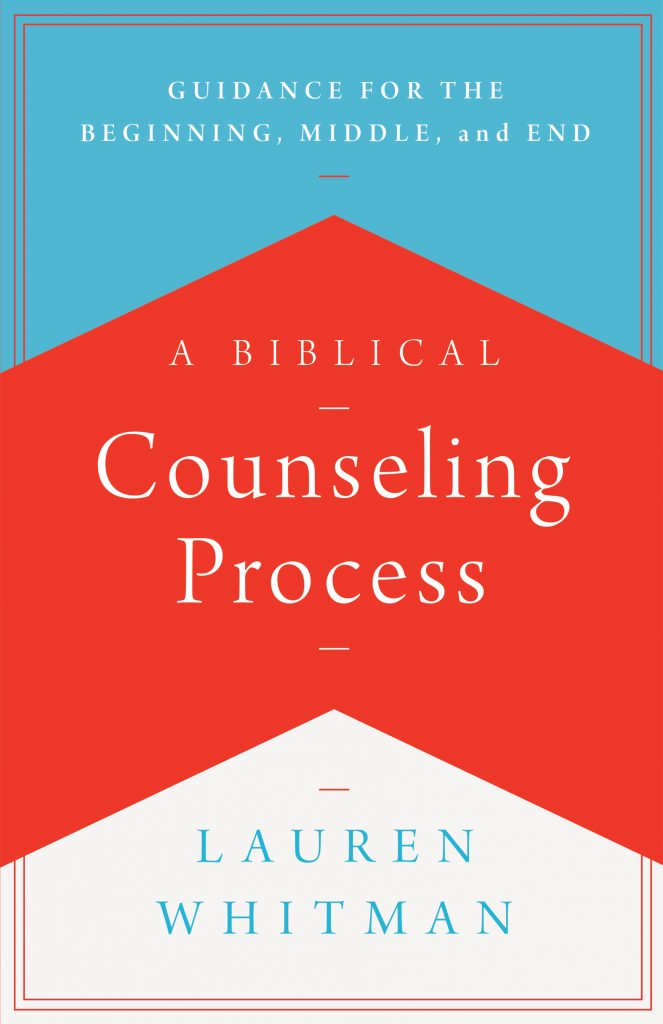“I instruct you in the way of wisdom and lead you along straight paths.”
Proverbs 4:11, NIV
The Lord is faithful. He faithfully instructs us. He faithfully leads us along. His ways are wise. His paths are straight. As you near the end of counseling, you and your counselee have interpreted where the straight path is for them. You have imagined what life is like for them on the straight path. And your counselee has submitted to the Lord’s lead and begun to walk along that path. At the end of the counseling process, you are bearing witness to this happening. The counselee is bearing witness to it happening. The counselee’s troublesome behaviors or responses have been changing. Sinful patterns have lost their grip in the person’s life. The person runs quickly to the Lord for comfort in the midst of ongoing suffering. Doubt and unbelief have given way to trust and rest in God’s faithfulness—despite the circumstances. When we are in that place of our counseling, then the end of counseling is near.
MEET LESS OFTEN
One of our jobs as biblical counselors is to work ourselves out of a job. Our greatest thought for people is Jesus. It is dependence on Jesus. It is satisfaction and fulfillment in Jesus. By implication, we don’t want to create dependence on counseling or the counseling relationship. Our role in formal counseling settings is to come alongside others for a season and to equip them for faithful living in areas where they sought help. When you and the counselee are gaining confidence that the person has been equipped and can persevere in the imagined way forward, then it is a good idea to consider decreasing the frequency of sessions. It will come when you sense that counseling feels less needed, and your counselee probably will sense this too.
I encourage you to raise this topic, starting with a conversation about the frequency of your meetings. For example, I could say, “You should be so encouraged by the work you are doing in counseling. As you have shared with me, and as I have seen, you are working hard to implement in your life the changes we have talked about. I am so thankful for your progress. You might have been wondering—and I am too—if we are nearing the end of our season of counseling. One thing I have done with others when we have been in a similar place is to start meeting less frequently. That helps us see how things go when a longer stretch of time passes without you receiving counseling help. How would you feel about trying that for our next couple of sessions—perhaps just meeting once a month instead of biweekly?”
If people have been growing in confidence in their ability to enact new ways of living, then you can expect to hear agreement to the idea of meeting with decreased frequency. If the person disagrees, talk through the reasons why. If you proceed with decreased frequency, the longer stretch of time between sessions will be telling. It will tell you both how much more counseling help, if any, is needed. If counseling is still needed, you continue to iterate and fine-tune the steps of growth to practice in real life, keep troubleshooting as needed, while you continue to provide care, encouragement, and reinforcement of the imagined way forward.
IMAGINE THE LONG-TERM WAY FORWARD
As you near the end of counseling, it’s also the time to initiate conversations that will help form and shape a long-term understanding and vision of the struggle and faithfulness to God amid the struggle. The imagined way forward has proved itself valid and helpful already in the short-term of this person’s life. Now as you both see this growth, you will want to equip your counselees to persevere over the long-term. Knowing the nature of your counselee’s struggle, what’s a realistic arc for that struggle over time? This is especially important for matters related to ongoing suffering, for the kinds of circumstances that might not change or “get better” in this life. Often we will counsel people who will not have much change in the area that is hard—maybe it’s chronic pain. Counseling is ending, and the pain is still there. Or maybe it’s a failed relationship. Counseling is ending, and the relationship has not been restored. But what has changed, matured, and grown by the end of counseling is people’s view of God in the midst of it. Their understanding of what God calls them to is changed. Their sense of what to expect over the long haul has been refined. On the last point, we again can help prepare people for this by naming wise, realistic expectations.
We can cast a vision and even preemptively help people interpret an experience that might come in the future, given the nature of the struggle. For example, with a failed relationship, you can help your counselee prepare for the future by starting a conversation like this: “When we’ve endured a significant loss, as you have, over time the pain of it can ebb and flow. As our season of counseling will come to a close soon, I know you feel more at peace with what happened, and I am grateful for that. But there might come a time when the pain of the loss feels acute again. Sometimes it’s a transition in life. Something important is happening to you, and it hurts when you remember that you don’t have this person anymore. I want you to know that that would be a normal feeling to have and doesn’t mean that the work you’ve done to heal is all for naught.”
In that same vein, you can prepare people who have made strides in fighting a pattern of sin by brainstorming a plan for a potential, future time if they were to fall back into old habits. This must be discussed sensitively and with hope because falling back is not inevitable. Yet if there is a plan in place for responding if it does occur, it’s more likely the person won’t fall so hard.
You can initiate a conversation that sounds similar to this: “It has been a joy to see how you have depended on the Spirit’s help to fight against sin. You have strategies in place now to help deter and distract you when temptations come. I am so hopeful for how God will continue to show his faithfulness in this area as you abide in him. As we look toward the end of counseling, one thing I like to do with people is put a plan in place in case there comes a time in the future where you may feel strongly tempted or maybe you have given into temptation. Of course, we hope and pray that won’t happen, but if we have a plan for what you’ll do next, that can help you get back on track more quickly.” From there you collaborate and agree on a plan with the counselee.
BE ALERT TO INDICATORS OF SPIRITUAL HEALTH
What else should you and the counselee be alert to as indications that counseling is nearing its end? In his article, “When Should Counseling End?” Alasdair Groves identifies four spiritual elements that you will want to know are active and vibrant in the counselee’s life:
- The presence of consistent spiritual disciplines
- The involvement of at least one other person who is lovingly engaged
- The ability to ask for specific prayer
- Committed involvement in a church community
In addition to the person having shown momentum and perseverance to traverse the faithful way forward, the presence of these four elements gives you and the counselee further reason to believe and hope that they will continue on the “straight path” after you step out of the counselee’s life. This means you will assess and inquire about each of these four elements. I don’t mean that you should do so all at once, as a sort of checklist to cover. Rather, over time as you are walking with the counselee, be alert to these matters because they point to spiritual health and spiritual depth. This also means you will work together to create or strengthen any areas that are lacking or weak.
CONCLUSION
Accurate knowledge of the matters we’ve discussed here will culminate in both you and the counselee feeling confident that the decision to end counseling is the right one. You will have identified and discussed concrete reasons for you andthe counselee to trust that it is the right decision. The counselee feels equipped. The way forward has been clear for some time now, and your counselee has internal momentum and motivation to persevere.
When you and the counselee are at this point, then you are ready to say goodbye.
Excerpted from A Biblical Counseling Process: Guidance for the Beginning, Middle, and End © 2021 by Lauren Whitman. Used with permission of New Growth Press. May not be reproduced without prior written permission.






